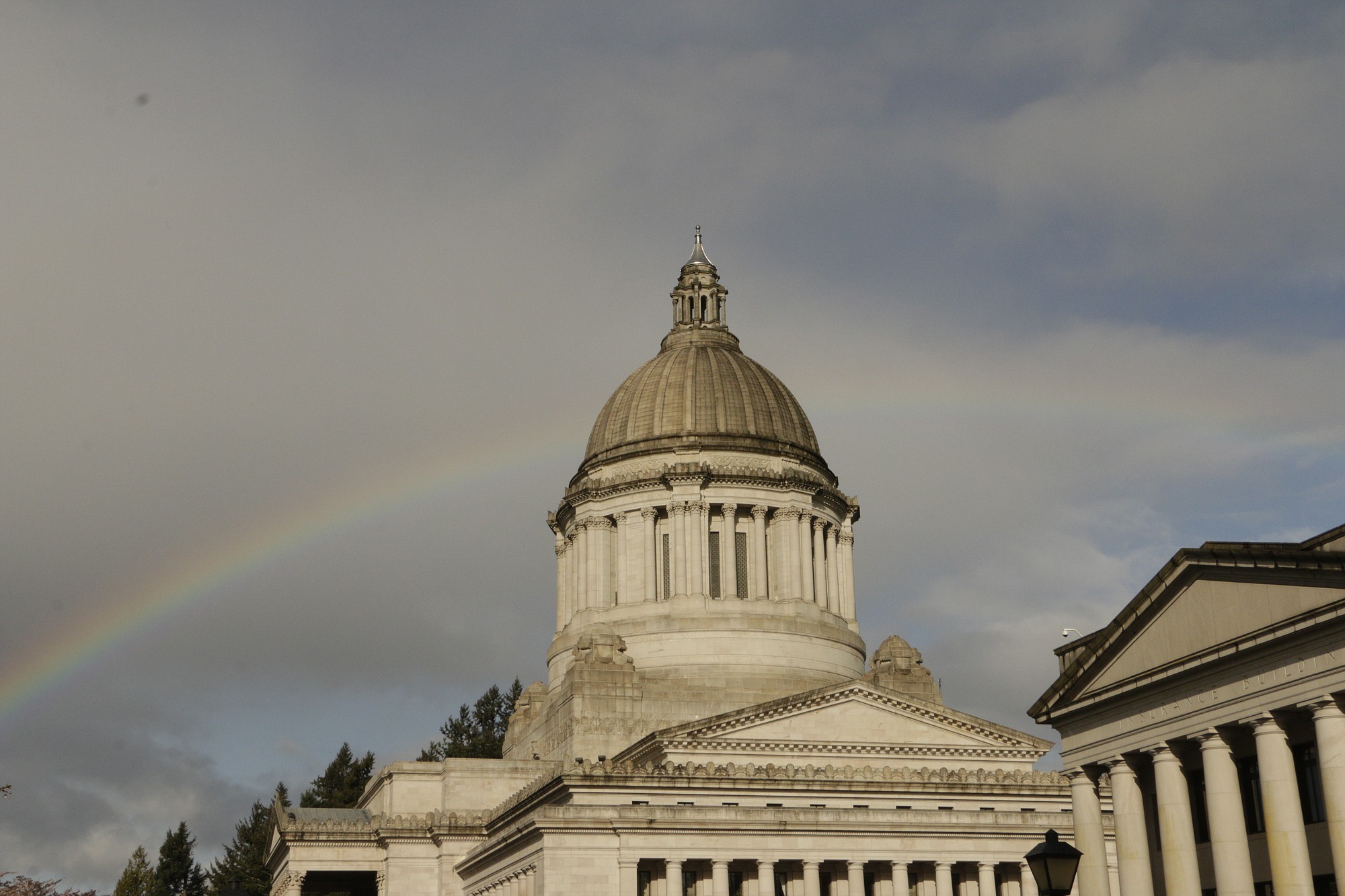o Rep. Sharon Wylie, D-Vancouver, said the budget proposal will be good for Southwest Washington.
“Thankfully there’s something in it that everyone is uncomfortable with, but there’s enough positive that reflects our priorities,” Wylie said.
o Sen. Ann Rivers, R-La Center, blasted the capital gains tax proposal, calling it an unstable source of revenue.
“We need a stable source of funding for our teachers and our kids, what’s been presented here doesn’t represent the stability we need,” Rivers said.
o Rep. Sharon Wylie, D-Vancouver, said the budget proposal will be good for Southwest Washington.
"Thankfully there's something in it that everyone is uncomfortable with, but there's enough positive that reflects our priorities," Wylie said.
o Sen. Ann Rivers, R-La Center, blasted the capital gains tax proposal, calling it an unstable source of revenue.
"We need a stable source of funding for our teachers and our kids, what's been presented here doesn't represent the stability we need," Rivers said.
o Rep. Jim Moeller, D-Vancouver, said the budget prioritizes the middle class and those who work hard.
"Now is the time for us to fix the unfair tax structure and finally start building a Washington we want to leave for our children," Moeller said.
o Rep. Jim Moeller, D-Vancouver, said the budget prioritizes the middle class and those who work hard.
“Now is the time for us to fix the unfair tax structure and finally start building a Washington we want to leave for our children,” Moeller said.
OLYMPIA — House Democrats on Friday released a two-year budget plan that proposes a capital gains tax as part of $1.4 billion in new spending to address a court mandate to increase money to the state’s basic education system.
Under the plan, the state tax on the sale of stocks, bonds and other assets wouldn’t kick in until next year, and would raise $570 million for the last year of the 2015-17 budget. Budget writers say the first $400 million raised would be booked to comply with a state Supreme Court order to increase spending on K-12 education; any additional amount raised beyond that — estimated to be $170 million a year — would go to higher education.
The plan proposes to spend $412 million to reduce class sizes in kindergarten through third grade; $741 million on textbooks and supplies; and 180 million on all-day kindergarten. It also puts restores cost-of-living raises for teachers that have been suspended by the Legislature for the past several years. House Democrats are also seeing to freeze tuition at the state’s universities for two years.
“If the court wants a plan, this is a plan. A funded plan,” said Rep. Ross Hunter, a Democrat from Medina who is the main budget writer in the House.
The plan seeks to levy a 5 percent capital gains tax on earnings from the sale of stocks, bonds and other assets above $25,000 for individuals and $50,000 for those who file jointly. The levy would begin in the second year of the biennium, or January 2016. About 31,500 people would be affected by the new tax, lawmakers said. Retirement accounts, most primary residences and most agricultural lands and most timber would be exempt from the tax, as would personal property used in a business.
A slight increase in the state business and occupation tax paid by doctors, lawyers and architects would raise $532 million. The budget plan also doubles the current small service business tax credit, which legislative leaders said would eliminate business and occupation taxes for 15,000 businesses a year. An additional $300 million would come from the repeal of seven tax exemptions, one for oil refineries and other for residents who live in states without a sales tax, like Oregon.
The proposed tax and revenue changes add up to about $1.4 billion and are part of an overall $39 billion operating budget.
Rep. Reuven Carlyle, a Democrat from Seattle who is chairman of the House Finance Committee, said that the state’s current tax system is regressive.
“We are attempting, with this plan of funding this budget, to take a real step forward toward fairness,” Carlyle said.
Not included in the plan was a proposal put forth by Gov. Jay Inslee to increase money to the state’s general fund with a cap-and-trade program that would require the state’s largest industrial polluters to pay for every ton of carbon they release.
“There is a fierce and strong belief that we have to take meaningful and old action on climate,” Carlyle said, but acknowledged that lawmakers feel they need extra time to understand how to implement such a program in the state.
Senate Republicans have said that that the state has enough for existing services and education, and that the focus shouldn’t be on higher taxes, but efficient spending. They are expected to release their budget plan in the coming week or so. Lawmakers are in the midst of a 105-day legislative session that is scheduled to end April 26.



